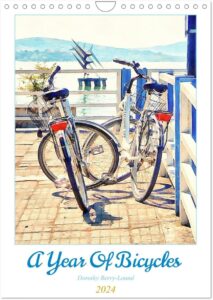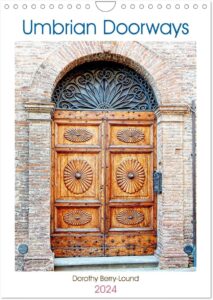
Mark your calendar! My blog looks at the history of the calendar and how calendars have changed over time.
Mark Your Calendar
What is a calendar?
 The word ‘calendar’ is both a verb (to calendar something) and a noun. But what is a calendar? Put simply, a calendar is a way of organizing days. It is often chart which may consist of several pages. It shows the days, weeks and months of a particular year. Some pre-established information such as the dates for bank holidays, notable events in the year or the phases of the moon may be included.
The word ‘calendar’ is both a verb (to calendar something) and a noun. But what is a calendar? Put simply, a calendar is a way of organizing days. It is often chart which may consist of several pages. It shows the days, weeks and months of a particular year. Some pre-established information such as the dates for bank holidays, notable events in the year or the phases of the moon may be included.
At home, people use them for keeping track of social events, medical appointments, veterinary clinic appointments (hands up here) etc. At work they are used for noting appointments for business meetings, renewal dates for subscriptions etc. You ‘mark your calendar’ with important dates.
 A calendar is also known as a timetable, schedule, program, agenda and diary (and possibly a few others) but these words are often used interchangeably. In North America, a calendar is also known as a book in which to write down appointments.
A calendar is also known as a timetable, schedule, program, agenda and diary (and possibly a few others) but these words are often used interchangeably. In North America, a calendar is also known as a book in which to write down appointments.
The history of calendars
Origins of the word calendar
The word ‘calendar’ comes from the name of the first day of the month in the Roman calendar ‘calendae‘. It was the day of the new moon. The movement of the sun and the moon provided the basis for early calendars (based on observation of the sun and moon rather than fixed dates) and the earliest recognized calendars date back to Bronze Age.
There are 12 months in a year – or are there?
Today we are used to 12 months in a year but originally there were fewer than that. This short video explains the history behind the months of the year and their names.
Reformation of the calendar
As the video shows, the calendar that we know today was reformed by Julius Caesar in 45BC. In 1520 the Gregorian Calendar was introduced which took into account differences between the Julian Calendar and the solar year. Each year was based on just over 365 days (the time it takes for the Earth to orbit the Sun) and an additional day is added every four years to allow a catch up, what we now call a leap year.
Calendars based on different systems and beliefs
Calendars are based on many different systems and beliefs. Just some of the many calendars you may have heard of include the Mayan Calendar, the Chinese Calendar and various religious calendars. Then let’s not forget the fiscal calendars (or maybe we should gloss over them?) which fix each month at a specific number of weeks in order to allow comparison between years. There is the financial year to be taken account of (5 April marks the start in the UK, 1 January marks the start in Italy), the academic year (from September in the UK for example), all of which have calendars.
And given the time of year let’s not forget the Advent calendar!
Quotes about calendars
Here are three quotes about calendars that I rather like:
Growing up with calendars
 I grew up with calendars hanging on walls with various dates marked on them in scrawled handwriting. They were part of everyday life. Mum used to say to me ‘mark your calendar’ to make sure I had a special date noted. I know someone who would put a cross through each day on the calendar when the day was over. Printed calendars were very functional. Then people realized the value of the calendar as an advertising tool, with free calendars being distributed by local firms. Then along came the art calendar, like mine, which combined functionality with beautiful pictures that change each month. As kids we looked forward to seeing what the new picture was going to be at the beginning of each month.
I grew up with calendars hanging on walls with various dates marked on them in scrawled handwriting. They were part of everyday life. Mum used to say to me ‘mark your calendar’ to make sure I had a special date noted. I know someone who would put a cross through each day on the calendar when the day was over. Printed calendars were very functional. Then people realized the value of the calendar as an advertising tool, with free calendars being distributed by local firms. Then along came the art calendar, like mine, which combined functionality with beautiful pictures that change each month. As kids we looked forward to seeing what the new picture was going to be at the beginning of each month.
But who needs a paper calendar if they have a computer?
The introduction of computerized calendars has led to a decline in the use of wall calendars. But according to an article in the New York Times, the sales of certain kinds of calendar have actually increased. Many people prefer paper-based calendars rather than computerized versions as they don’t have to juggle with opening new tabs and don’t suffer the alerts and messages that computerized calendars generate.
I learnt the hard way recently that if you lose your internet you also lose your calendar so I now make sure I have a written note of important dates! Yes, you can print out a version of your computer-based calendar but it is not particularly pretty to look at. Nothing beats a nicely laid out, attractive calendar. Art calendars have not lost their popularity and make great gifts that are well received.
Where you can buy my Art Calendars
Click here to see my range of Art Calendars and where you can purchase them (including Amazon).
This article was originally published in 2017, updated and republished 15 May 2022 and updated again 13 April 2024.
Before you go

My name is Dorothy Berry-Lound an artist and writer. You can find out more about my art and writing at https://dorothyberryloundart.com.
You can follow me on Facebook.
Thank you for reading!


As usual, Dorothy, a nicely done blog that is very well illustrated. I’m probably guilty of just using the computer calendar – but then I don’t wear a watch either – happens when you truly retire and neither the day nor the time makes a lot of difference – unless you have a doctors appointment.
That’s kind of you Roy, I appreciate your support of my blog. I would have agreed with you until I lost the internet for four days. I had no idea re the various appointments I had in the electronic calendar! I didn’t have a note of them anywhere. So now I keep the main things on a printed calendar (one of mine of course) so that we wouldn’t be lost next time!
I knew some of this but not all. My son had a thing for calendars a few years ago.
I am glad you found it interesting Audrey.
I can’t function without my planner–paper in hand. As much as I am grasping and growing with electronic options, apps, and online programs, I’ll never fully trust them. ha ha,
After our little spell with no internet I agree with you. I was lost! So now, always a paper version to hand.